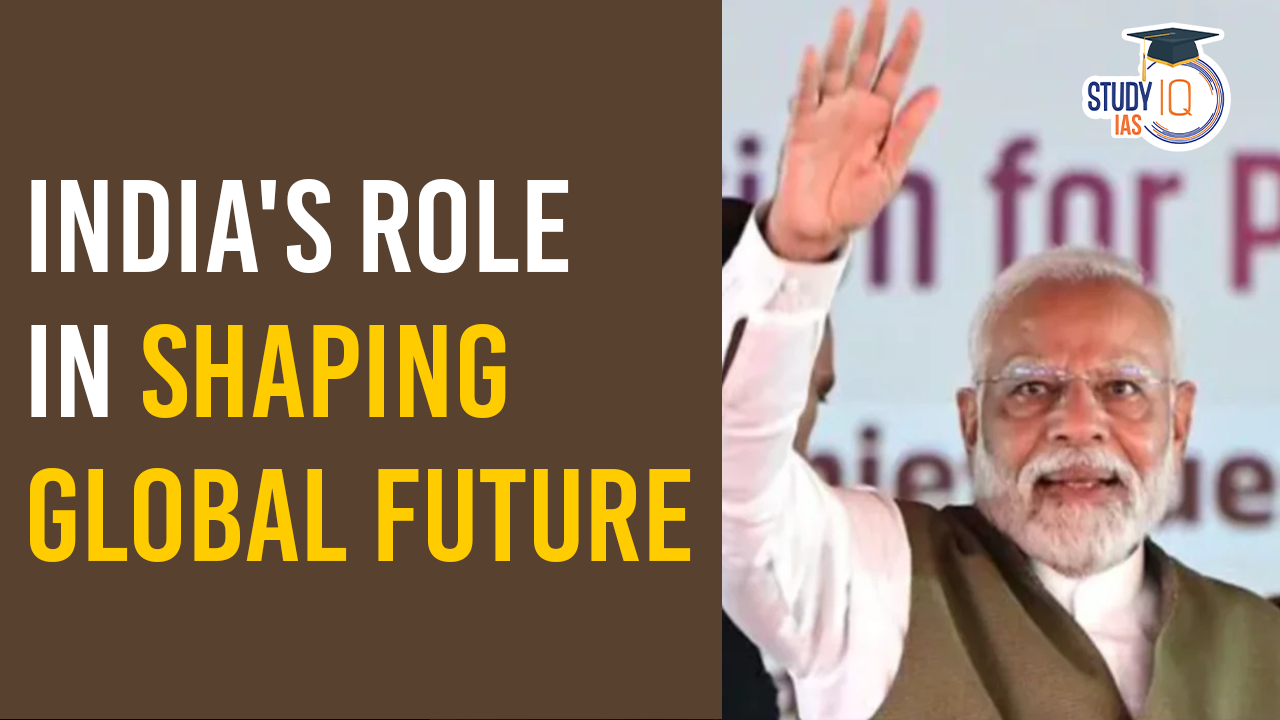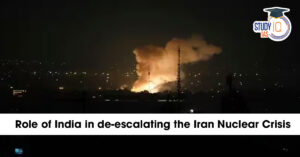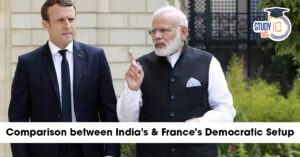Table of Contents
Context: Prime Minister Narendra Modi emphasised India’s civilizational heritage of Vasudhaiva Kutumbakam (the world is one family) at the UN Summit of the Future.
More in News
PM Modi aligned India’s G20 presidency ethos with global collective action for a better future, especially focusing on key agreements such as the Pact for the Future (PFF), Declaration on Future Generations (DFG), and Global Digital Compact (GDC).
Key Outcome of the UN Summit
- India’s Role: Modi represented India as a “vishvamitra,” advocating for a sixth of humanity. He reinforced the voice of the Global South and advocated for the G20 New Delhi Declaration (NDLD).
- PM Modi’s Highlights:
- Stressed human-centric development.
- Presented India’s successes in SDGs, Digital Public Infrastructure (DPI), and solar energy, offering to share India’s expertise.
- Called for global reforms, using the African Union’s admission to the G20 as an example of progress.
- Urged collective action against terrorism, cyber threats, and space security, and warned of the dangers of ignoring these modern threats.
Global Challenges Highlighted at the Summit
- UN Reform: There is an urgent need for reform in the UN system because it cannot respond to modern challenges using outdated institutions.
- Example: The UN Secretary-General admitted that the “UN can’t build a future for our grandchildren with the institutions of our grandparents” and that the “multilateral system is gridlocked in dysfunction”.
- Global Instability: The summit took place amid growing international disorder, including:
- The NATO-Ukraine/Russia conflict.
- A new cold war between the West and China.
- The Gaza war, with concerns over a nuclear threat and potential global conflict.
- Terrorism and Armament: Concerns were raised over the global rearmament race, terrorism, and manipulation of foreign narratives, particularly in developing countries.
- Climate Change: The world is lagging behind on 88% of SDG targets, and extreme weather events driven by climate change are worsening.
- Developing countries continue to face challenges due to a lack of financing from multilateral financial institutions (MFIs) and the failure to deliver green technologies and debt relief.
Summit’s Commitments and Actions
- Pact for the Future (PFF): Comprising 58 actions, the PFF sought to address conflict prevention, peacemaking, SDGs, environmental protection, climate financing, human rights, gender equality, and technology governance.
- It was seen as a step toward restoring trust in multilateralism.
- Global Digital Compact (GDC): This agreement aligns with India’s G20 goals of bridging the digital divide, advancing the digital economy, and leveraging digital public infrastructure for SDGs.
- It proposed setting up an Independent International Scientific Panel on AI and initiating a Global Dialogue on AI Governance.
- Security Council Reform: India, alongside African nations, was recognized as deserving of a more prominent role in a reformed UN Security Council (UNSC).
- The summit pledged to make the UNSC more representative, inclusive, transparent, and effective, but lacked a concrete timeline for reforms.
- Global Terrorism: A clear stance was adopted against terrorism, pledging to pursue a world free from terrorism in all its forms, with a focus on counterterrorism through the revitalization of the Convention against Terrorism.
Challenges and Limitations
- Lack of Clear Action Plans: Many critics believe that the Summit focused more on discussing the reasons for change and what needs to be done, rather than explaining how to actually implement and enforce these commitments.
- Insufficient Financial Support: While the Pact for the Future (PFF) promised to take bold actions for sustainable development and climate change, it did not specify how to significantly increase funding for developing countries, which is necessary to meet these goals.
- Terrorism Commitments Are Weak: Although there was a commitment to work towards a future free from terrorism, the effectiveness of UN efforts is still limited due to reliance on donor funding and political agendas.
- UN Security Council Reforms Are Stalled: The agreement to make the UN Security Council more inclusive and effective faced obstacles from some powerful countries, preventing any real progress on reforms.
- Global Cooperation Is Difficult: With ongoing conflicts and tensions between countries, achieving cooperation on these global issues remains a significant challenge.
Conclusion: A Path Forward for Global Solidarity
The summit underscored the importance of solidarity, equity, and global cooperation. It recognized the need to adapt multilateral institutions to today’s realities and provided a compass for future global governance. India, with its emphasis on Vasudhaiva Kutumbakam, called for nations to rise above narrow interests and work together for the collective good of people and the planet. As the Sanskrit saying goes, “Yad Bhavam, Tad Bhavati” — you become what you believe.


 Iran Nuclear Crisis and India’s Role f...
Iran Nuclear Crisis and India’s Role f...
 H1B Visa Program, Beneficiaries, Eligibi...
H1B Visa Program, Beneficiaries, Eligibi...
 Comparison Between India & France's ...
Comparison Between India & France's ...

























